The past projects, programming and publications listed below engage the questions in Lines of Inquiry 2, part of The Blackwood Index on Campus lightbox series. Prompted by the corresponding graphs on the Index, this selection of work exemplifies points of interaction within the Blackwood's ongoing programs. Together, these artists, writers and researchers attune us to the outgrowths, demands, and curiosities that the inquiries provoke.
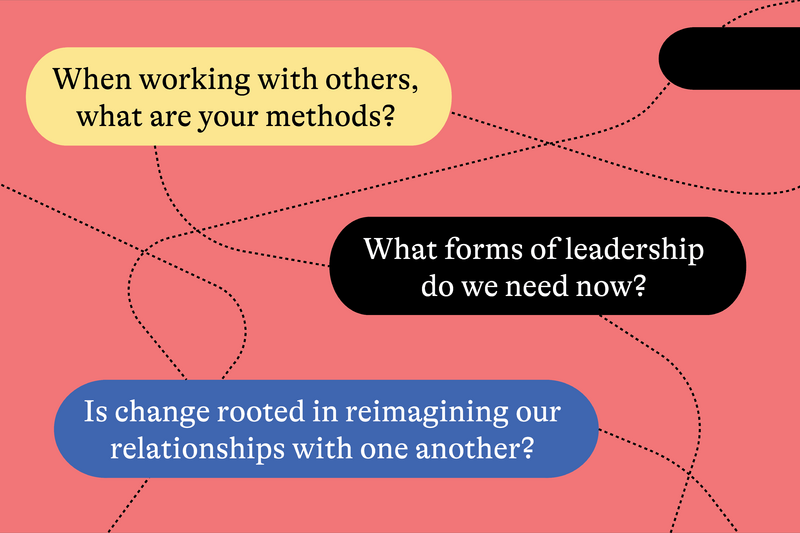
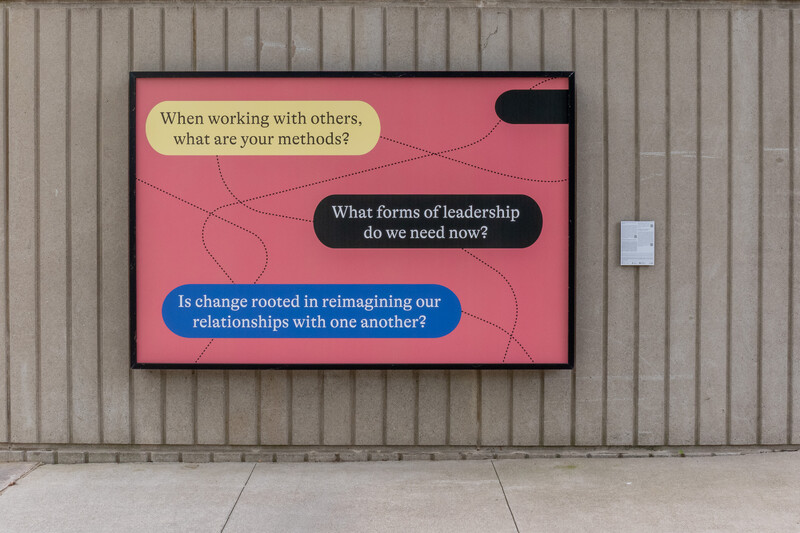
Related Programs
Public Recordings, Capitalist Duets, 2016
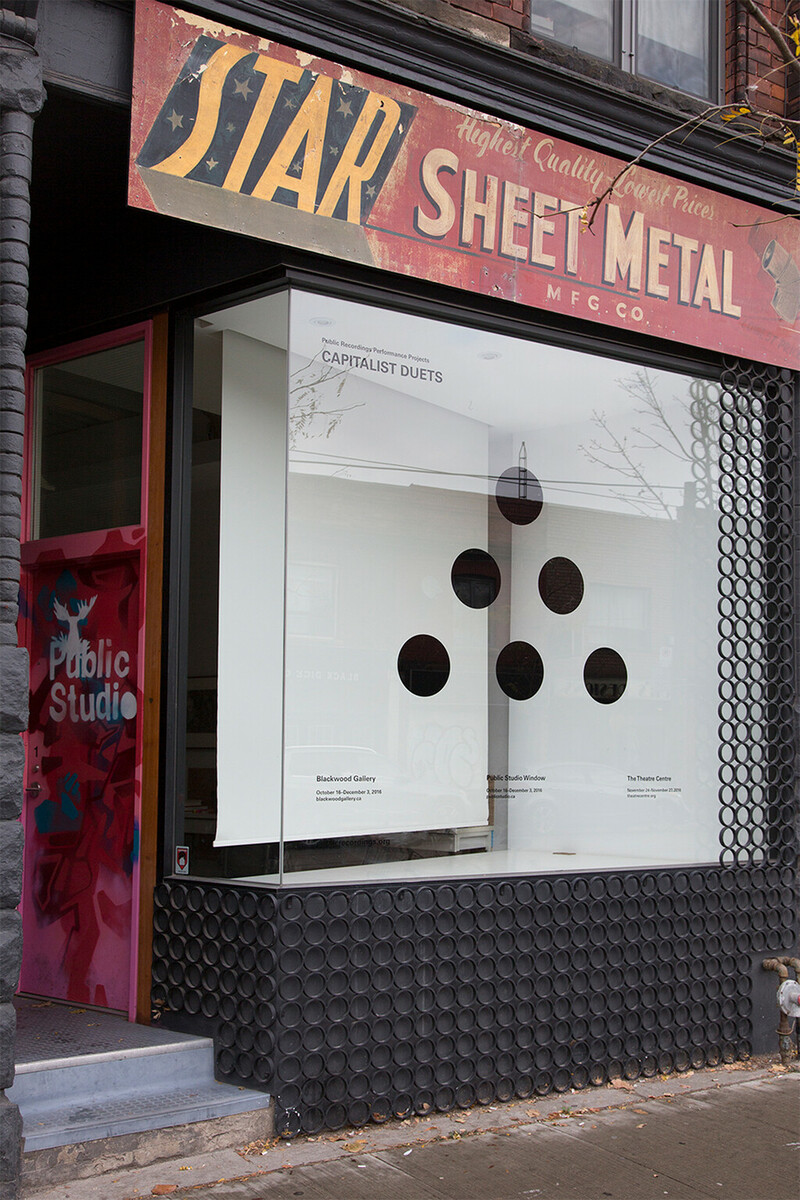
CAPITALIST DUETS is a performance made up of seven independently authored duets presented simultaneously as an unaffected spectacle. The 2016 iteration was presented at The Theatre Centre as part of the Blackwood’s 2016 exhibition I stood before the source. The performance tackled alternate ways in which we visualize and understand the economy and the flow of money and labour through choreography, communicating a more affective experience of capitalism located in the body and its movements
Mikhail Karikis, No Ordinary Protest, 2018
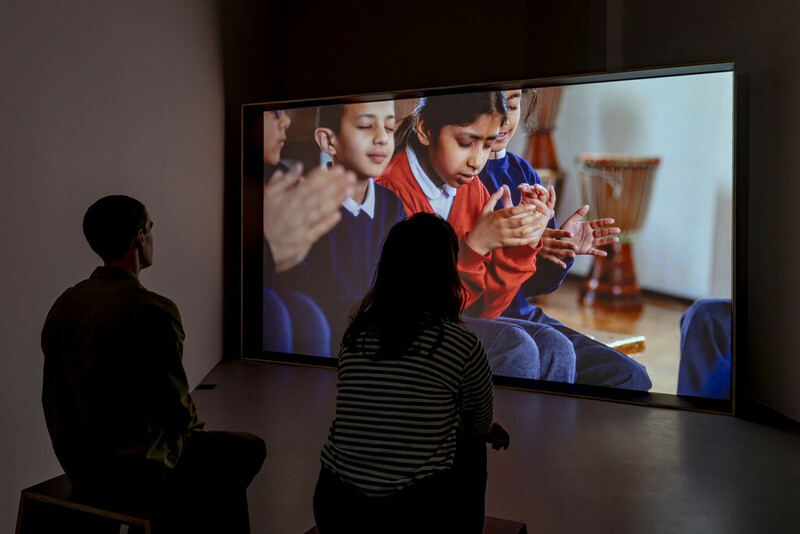
For No Ordinary Protest, Mikhail Karikis engaged with a group of 7-year-olds from a London primary school throughout their academic year. Through workshops, experimental pedagogical methods, reading, debating, and play, they created a film together which reflects on the environmental themes of the book and imagines the enigmatic noise that assists the protagonists in their protest.
SDUK10: PRONOUNCING, 2021
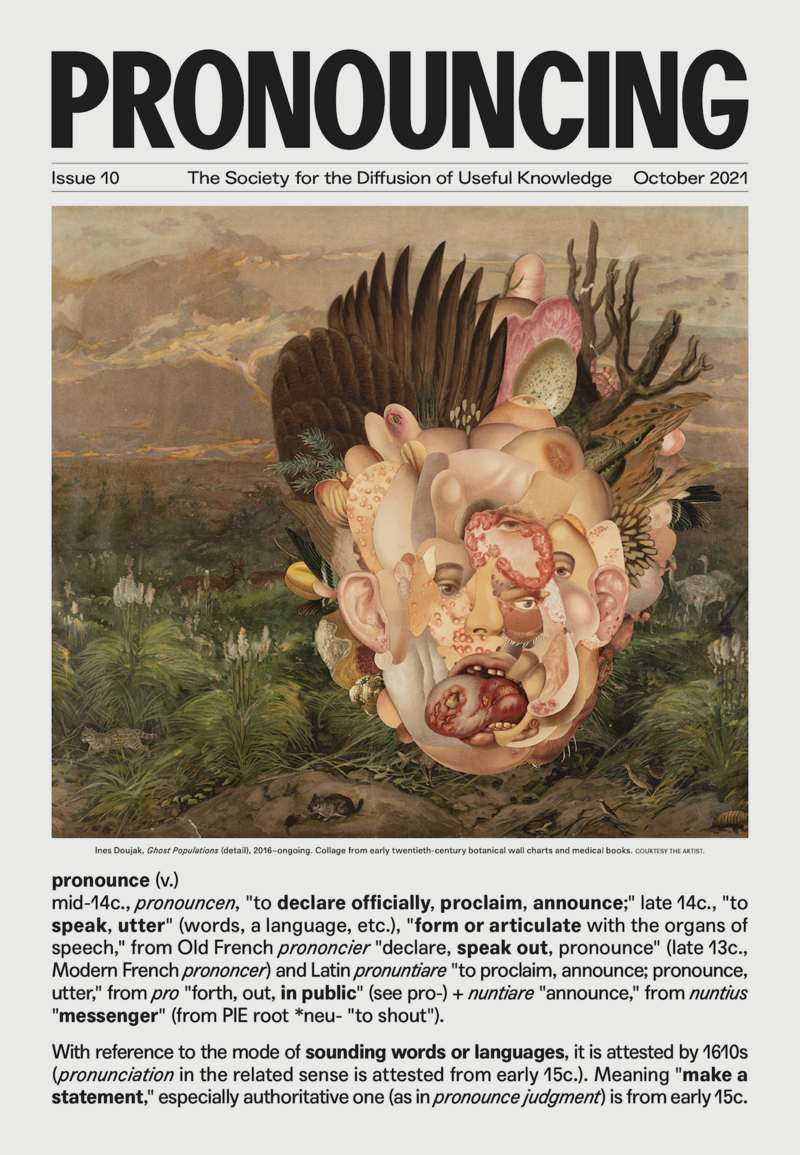
The tenth SDUK broadsheet took up PRONOUNCING: how speech, performance, language, and poetry shape sociopolitical discourse. In parallel withArtists-in-Presidents: Transmissions to Power, a series of leadership portraits and audio addresses from artists-as-leaders, the Blackwood engaged discourses of speech and power throughout 2021.
Contributors: Oana Avasilichioaei, Eliza Chandler, Jesse Chun, Zoë Dodd, Ines Doujak, Vanessa Dion Fletcher, Louise Hickman, LLana James, Maandeeq Mohamed, Matt Nish-Lapidus, Shama Rangwala, Laura Rosella, Jordan Scott, Ai Taniguchi, Rinaldo Walcott, Jacob Wren
Amanda Boetzkes, Synthetic Collective, Myra J. Hird, Sara Hughes, Ecologies of Waste: A Conversation, 2018

From the great garbage patch in the Pacific Ocean, to microplastics in the Great Lakes Region, to 34 million tons of municipal waste in Canada according to the latest statistics, waste and plastic pollution is both a global and local issue. This event, hosted next to Museo Aero Solar, brings together artists, scientists, and researchers to share their work on the waste crisis and creative pathways to remediation and sustainability. Presented as part of The Work of Wind: Air, Land, Sea a site-specific exhibition, public program series, and publication platform designed to expand perspectives on climate change through artistic practices, cultural inquiry, and political mobilization.
Artists-in-Presidents: Transmissions to Power, 2021

Artists-in-Presidents: Transmissions to Power is a polyvocal art project initiated by Constance Hockaday that takes up and subverts the model of the Presidential Address or Transmission to the Nation. The Blackwood commissioned 21 artists, thinkers, performers, and writers to create audio addresses that perform power in new and different ways, and together compose a rousing collection of imaginative proposals for the leadership we need in this moment of global crisis and possibility. Inspired by Franklin Delano Roosevelt's Depression-era radio broadcasts called the “Fireside Chats” as a framework for speaking frankly and directly to the people, Artists-in-Presidents replaces the one-man hero story that plagues our histories and governing bodies around the globe, and complicates calls for unity by asking, “What messages do we need to broadcast to our nation(s) and relations now?”
Accessibility
The Blackwood Index on Campus is presented on four outdoor lightboxes in public spaces across the UTM campus. Some movement throughout the campus is required—ramps and curb cuts are in place.
Download a printable map for your visit.
Acknowledgements
The Blackwood gratefully acknowledges the support of the University of Toronto Mississauga, Canada Council for the Arts, and the Ontario Arts Council.

Lines of Inquiry 2
When working with others, what are your methods?
Describing her scholarly and grassroots organizing practices in the Living with Concepts micropublication, Danielle Boissoneau shares a question perpetually asked and re-asked among collaborators: “What are your methods?” In this context and beyond it, a focus on methods underscores their importance to expansive, accountable, and equitable collaboration. How to work together amid difference and conflict? What strategies sustain groups and collectives in the short and long-term? How can methods reshape the means and ends of a project? What methods do we need now? Contributors across Blackwood programs and publications demonstrate the varied forms collaboration takes. In academic labs, artist collectives, activist organizations, and ad hoc groups, they highlight the diverse methodologies for working together, and the attendant impacts of methods on project outcomes.
What forms of leadership do we need now?
We reiterate this question posed by Constance Hockaday for Artists-in-Presidents: Transmissions to Power amid eroding trust in governance built on colonial and capitalist grounds. We need change now, but who can we entrust with taking leadership to get us there? What relations of power are allied to practices of care and justice for the collective good, both human and non-humans alike? Individuals and organizations at the forefront of abolitionist, environmental, and disability rights movements are using tactics of protest, cessation, and collaboration to propel decolonial, accessibility-driven, and Earth-centered paths forward. If democratic systems are premised on participatory decision-making, how can raised pedestals and amplified voices be decentered to enact these principles? What messages would we hear, and how might actions support words? The speeches, projects, events, and texts outlined below underscore the possibilities of polyvocal leadership.
Is change rooted in reimagining our relationships to one another?
If the personal is political—as the familiar claim popularized by feminists of the 1960 and 70s put it—how is this credo being reframed and reinterpreted in the social justice movements of today and beyond? The shaky distinction between personal and political spheres continues to be eroded through practices rooted in slowing down, re-assessing, taking time, and building relationships. Increasingly, we see that the way we treat each other in everyday interactions represents the world we want to build and live in. Informed by feminist organizing strategies, disability justice practices, Indigenous cosmologies, and new social movements, artists and organizers urge us to ask: How can a better world be rooted in reimagining everyday conventions and interactions? What can we ask of each other—and how can these requests be scaled up? How can we better foreground and honour our interdependencies?
Beginning in summer 2025, The Blackwood poses a series of questions across the four UTM campus lightboxes. These inquiries come at an inflection point: derived from the past ten years of programming led by Director/Curator Christine Shaw, they re-enliven institutional history to carry questions from our past into the future. In doing so, many have been edited to reflect what we’ve learned, and what we hope a question can provoke. Posed alone and in groupings, these questions reflect the scope of open-ended inquiry across multi-year programming.
Visit the Blackwood's Index to see an interactive graph which addresses these questions through The Blackwood’s programs.

The Blackwood
University of Toronto Mississauga
3359 Mississauga Road
Mississauga, ON L5L 1C6
[email protected]
(905) 828-3789
The galleries are currently closed.
Facebook | Twitter | Instagram
Sign up to receive our newsletter.
The Blackwood is situated on the Territory of the Mississaugas of the Credit, Seneca, and Huron-Wendat.